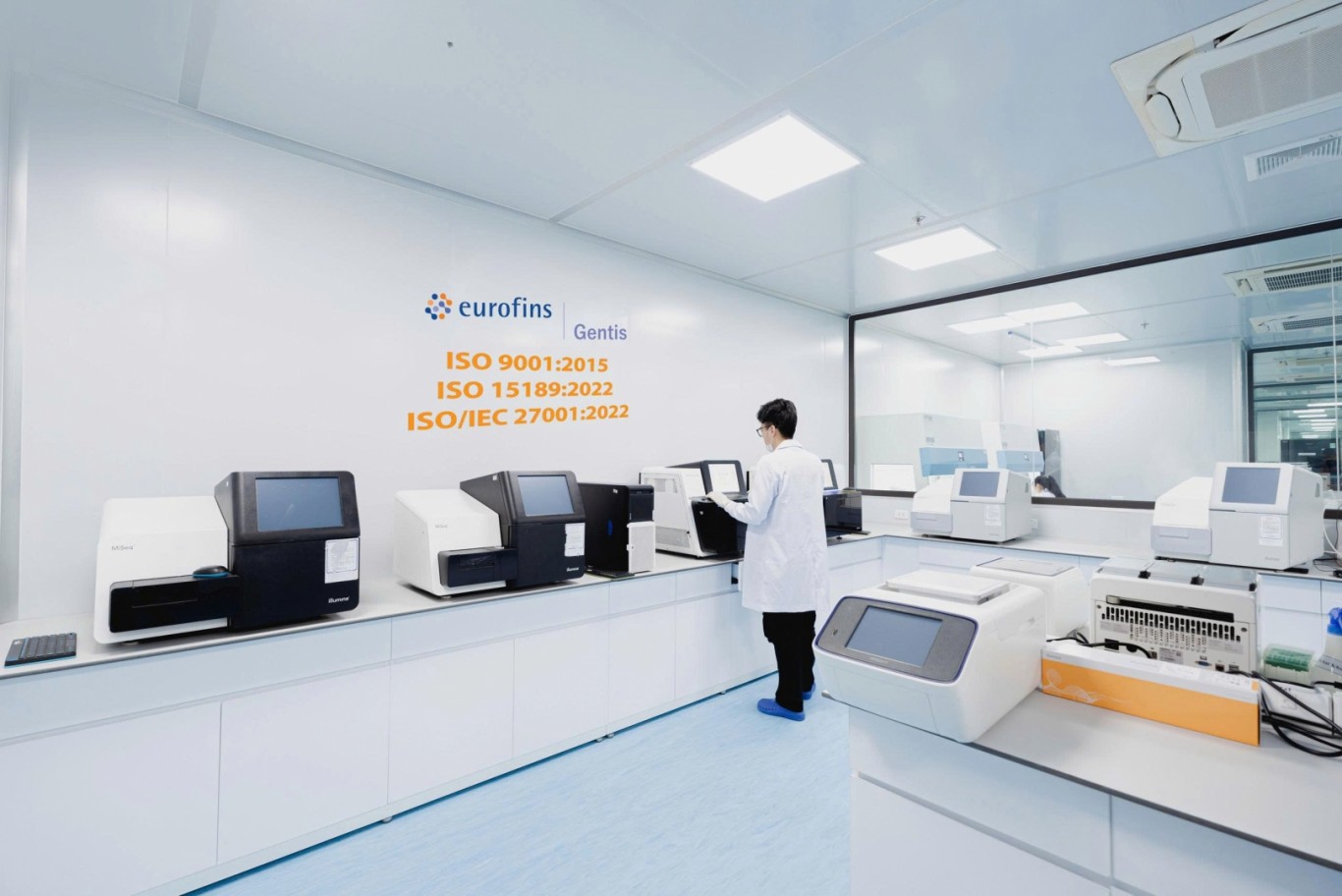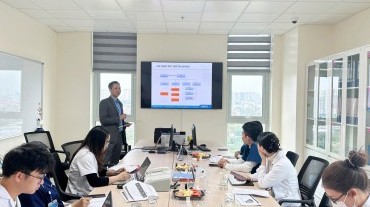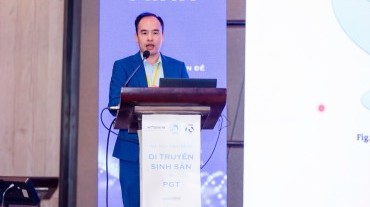With the goal of collaborating and conducting in-depth research on various testing services to support assisted reproduction, GENTIS organized a workshop introducing the "Expanded Thalassemia Testing Package" at Hong Ngoc Phuc Truong Minh Hospital's IVF Center. The workshop was attended by MSc. Hoang Thi Thuan, Head of the IVF Lab at Hong Ngoc Hospital, and over 15 medical professionals from the hospital.
 The workshop was attended by the medical staff of Hong Ngọc Hospital.
The workshop was attended by the medical staff of Hong Ngọc Hospital.
Representing GENTIS, Nguyen Thi Huyen, MD.MSc. - a senior researcher and genetic consultant at GENTIS Genetic Counseling Center, participated in the workshop.
At the workshop, Nguyen Thi Huyen, MD.MSc. presented a detailed report on the expanded thalassemia testing package developed by GENTIS.
Ms. Nguyen Thi Huyen began the workshop by providing a detailed explanation of the pathogenesis of hemoglobinopathies and common thalassemia mutations in the Vietnamese population.
 Dr. Nguyen Thi Huyen provided a detailed presentation on Thalassemia.
Dr. Nguyen Thi Huyen provided a detailed presentation on Thalassemia.
Thalassemia is the most common single-gene genetic disorder in the world. According to a 2008 report by the Thalassemia International Federation and WHO, an estimated 7% of the global population carries the thalassemia gene, and over 330,000 children are born with severe forms of the disease each year.
In Vietnam, the prevalence of the thalassemia gene is estimated to be as high as 12%, with over 12 million carriers. Thalassemia affects people from all provinces and ethnic groups across the country. Currently, there are over 20,000 people living with thalassemia and requiring lifelong treatment, and approximately 8,000 new cases are diagnosed each year, including around 2,000 severe cases and 800 fetal deaths due to fetal hydrops. (According to statistics from the Vietnam Thalassemia Association)
In order to help gene carriers be proactive in controlling and preventing Thalassemia, especially Thalassemia major as well as building a healthy community, GENTIS launches an expanded Thalassemia testing package to help detect mutations related to alpha thalassemia and beta thalassemia.
Mutations detected:
- The most common five mutations causing alpha thalassemia (-αSEA, -α3.7, -α4.2, -CS, QS)
- Over 800 mutations in the coding region of the HBB gene, including 16 common mutations (CD41/42, CD43, IVS-II-654, -28, -29, CD71/72, CD26, CD17, CD14/15, CD27/28, Cap, Int, IVS-I-1(G-T), IVS-I-1(G-A), IVS-I-5, CD31), have been reported in databases related to beta thalassemia and hemoglobinopathies. Other mutations include point mutations, deletions, and short insertions (less than 4 nucleotides) in the coding region and nearby introns (-10/+10 nucleotides from the exon) of the HBB gene.
The information about the testing package generated significant interest among the attending physicians.
 The doctors showed great interest in the content of the testing package.
The doctors showed great interest in the content of the testing package.
In response to MSc. Hoang Thi Thuan's question about the percentage of detected mutations compared to the total number of reported mutations, Ms. Nguyen Thi Huyen stated that:
“The mutations detected by GENTIS's expanded thalassemia testing package account for 97-98% of all thalassemia carriers. Additionally, GENTIS is currently researching and refining the process to develop a test that can detect even more alpha thalassemia mutations.”
 The medical team's inquiries received comprehensive and specific advice.
The medical team's inquiries received comprehensive and specific advice.
Moreover, Dr. Huyen provided detailed and clear answers to all the questions raised by the medical team. GENTIS's expanded thalassemia testing package is an advanced test that utilizes Illumina's next-generation sequencing (NGS) technology to enhance the detection of rare mutations that are not included in traditional testing packages. The doctors unanimously agreed that this testing package is a valuable tool for both clinicians and patients in screening for this dangerous genetic disease.











